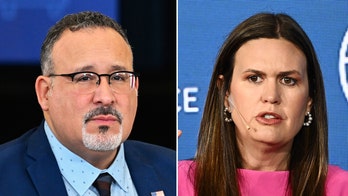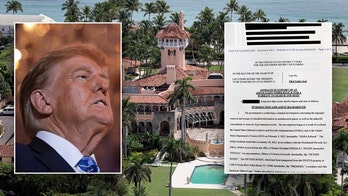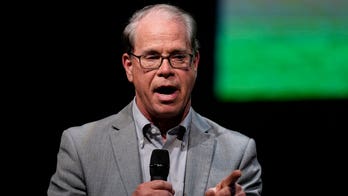Thousands of veterans who returned to college under the Post-9/11 GI Bill will have access to emergency aid this week to help them pay their bills until their expected aid arrives.
Of the 50,000 veterans who qualified for tuition, housing, and textbook payments under the new bill, only half of them have received their checks. That leaves about 25,000 veterans on the hook for living and education expenses until they receive their money.
"I have been paying rent out of pocket, I have had to take out extra loans, and I have had to ask family and friends for help. It has been a nightmare," said Elizabeth Lemerande, a 27-year-old Navy veteran enrolled at Piedmont College in Demorest, Ga. Lemerande works full-time and is relying on the $3,000 in emergency aid to help pay her rent for October.
On Monday, Speaker Nancy Pelosi, said the decision by the Secretary of Veterans Affairs Eric Shinseki to issue emergency funds this week will "address an unacceptable situation many of our nation's heroes were facing due to outdated technology.
"To recognize and reward the service of our troops, Congress passed the single largest investment in educational benefits for our veterans since World War II. Unfortunately, paperwork delays were forcing too many veterans to take out loans or seek out other financial assistance just to pay for the college education Congress promised them," she said in a statement. "With the quick action of the VA this week, our veterans will be able to focus on their studies, not the stresses of their education loans."
Navy veteran and Ohio State University student Jeff Kohler is counting on the emergency aid to help him stay afloat until he receives his benefits. Kohler has been dipping into his savings and using his credit card to pay for books and living expenses.
"Right now I'm just focused on getting started with classes, but if I don't get some money, I'm going to be racking up some debt," said Kohler.
While the emergency aid is meant to relieve veterans who have yet to see their benefits, some are skeptical about obtaining it.
"They say they will cut you a check but who knows," said Alex Higa, a 28-year-old Marine Corps veteran who is taking 17 units this fall at Barry University. Even though he is living on noodles and unable to pay his phone bill, Higa doesn't know if it will be worth skipping class on Friday to drive six hours to the VA for emergency aid.
Aaron Traphagen, a Marine Corps veteran seeking his master's in elementary education at Liberty University, said that he anticipated problems with the GI Bill and planned ahead by taking out loans. Traphagen will not seek emergency aid because he thinks it could create even more problems down the road.
"I'd rather have them owe me than me owe them," said Traphagen.
Although the VA does not know how many requests will be made for emergency funds, it says there are approximately 25,000 students eligible for the aid.
"This is an extraordinary action we're taking," Secretary of Veterans Affairs Eric K. Shinseki was quoted on the Web site for the Department of Veterans Affairs. "But it's necessary because we recognize the hardships some of our Veterans face."
According to the Web site, emergency aid will be available to eligible veterans at 57 regional offices beginning Friday. The VA also expects to send representatives to schools with large veteran-student bodies since not all campuses are located near a VA.




